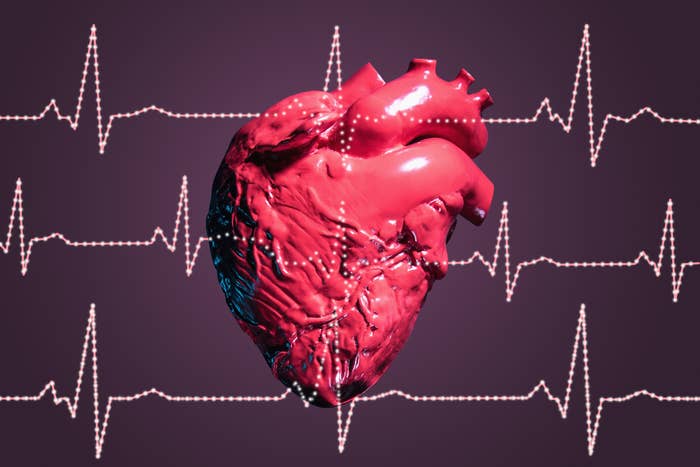
Most of us are aware that certain habits are flat-out terrible for our hearts. Smoking? Forget about it. A sedentary lifestyle — yep, that will eventually get you.
But with diet culture still running rampant, the foods that are “good” and “bad” can feel a bit murkier. The keto diet, for example, encourages piling on the bacon. And while it may help you lose weight, something about chomping on bacon every day feels — not great.
If you’re eating with your heart health in mind (and we all should be, at least a little bit!), you can read through the American Heart Association’s diet and lifestyle recommendations. Or, if you really want to cut to the chase, you can find out which foods top cardiologists avoid 99% of the time.
While none of these foods will kill you if eaten once in a while, cardiologists say these are the foods they never, or very rarely, eat.
Chopped liver
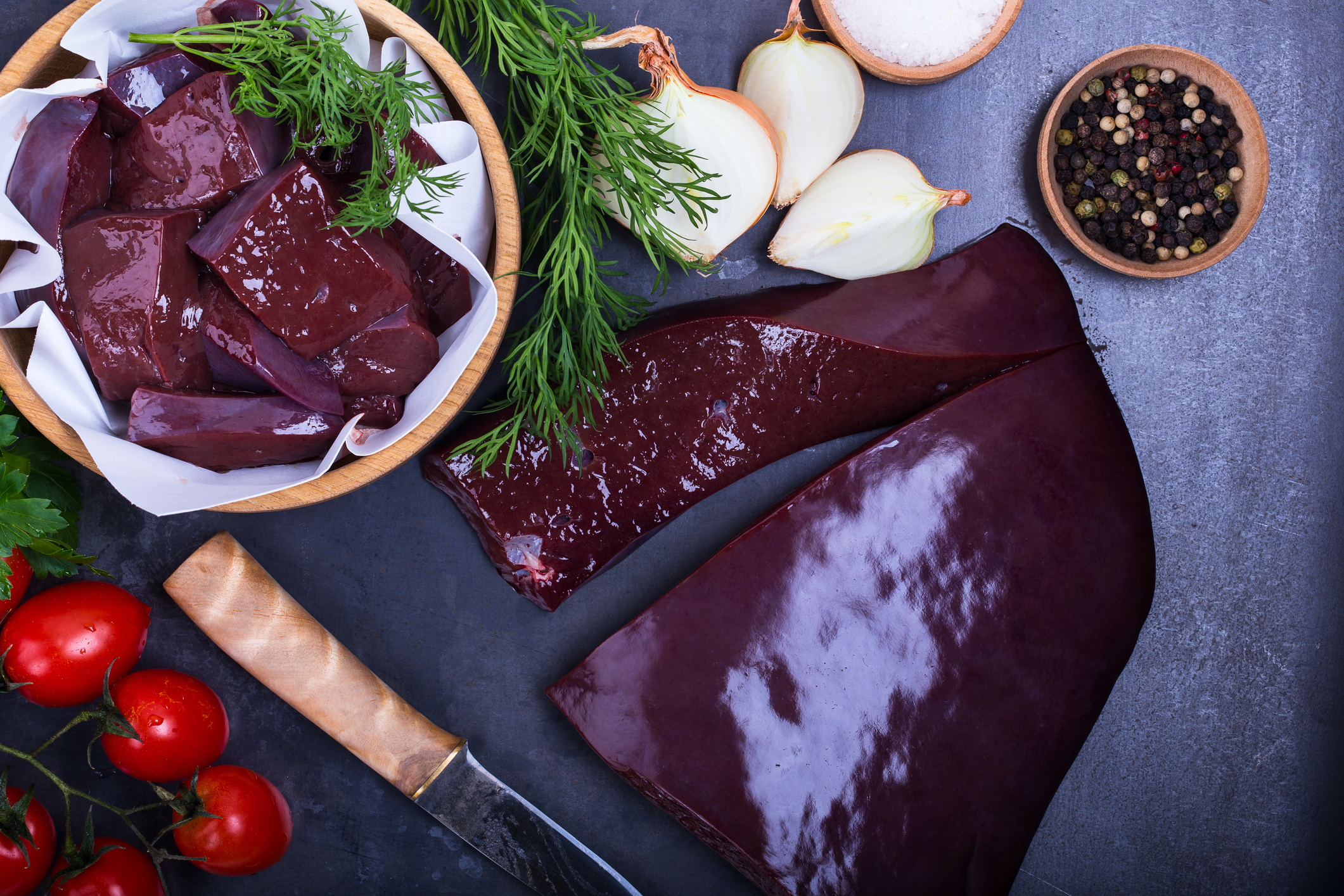
Some of us wrinkle our noses at the thought of eating chopped liver, while others absolutely love it. If you fall into the former category, you’re in luck. Dr. Eleanor Levin, a cardiologist at Stanford University, says she never eats liver.
“Liver is a red meat that’s extremely high in fat,” Levin said. “In general, I avoid red meat because it’s very high in saturated fat and trans fats, and in addition to being bad for the heart, saturated fat can provoke osteoporosis. Liver is especially bad because it’s also the organ that filters out toxins, so any toxins are typically just sitting there. I used to eat chopped liver when I was a kid, but I haven’t since I became a cardiologist.”
Breakfast sausages

Sad, but true: Dr. Elizabeth Klodas, a cardiologist based in Minneapolis, said she avoids breakfast sausages at all costs.
“These are high in sodium (promoting higher blood pressure) and a rich source of saturated fats, which raise cholesterol readings,” Klodas said. “Plus, because we only have so much room in our stomachs, foods like breakfast sausages can displace other items that might be more health-promoting.”
Klodas noted that all processed meats, including sausages, ham and bacon, have been classified as carcinogens by the World Health Organization.
Margarine

If you’re still eating fake butter, it’s time to stop, because margarine is just flat-out bad for you.
“Margarine seems like a great idea in theory, but it turns out to be just as bad as butter,” said Dr. Harmony Reynold, a cardiologist at NYU Langone Health. “A study found that with each tablespoon of margarine per day, people were 6% more likely to die over the median 16 years of the study. Olive oil is better, and each tablespoon of olive oil was associated with a 4% lower risk of death. With that in mind, I tell my patients to use olive oil whenever possible, even for cooking eggs, or toast. When nothing but the taste of butter will do, it’s still better to use mostly olive oil with a skinny pat of butter for flavor.”
Steak
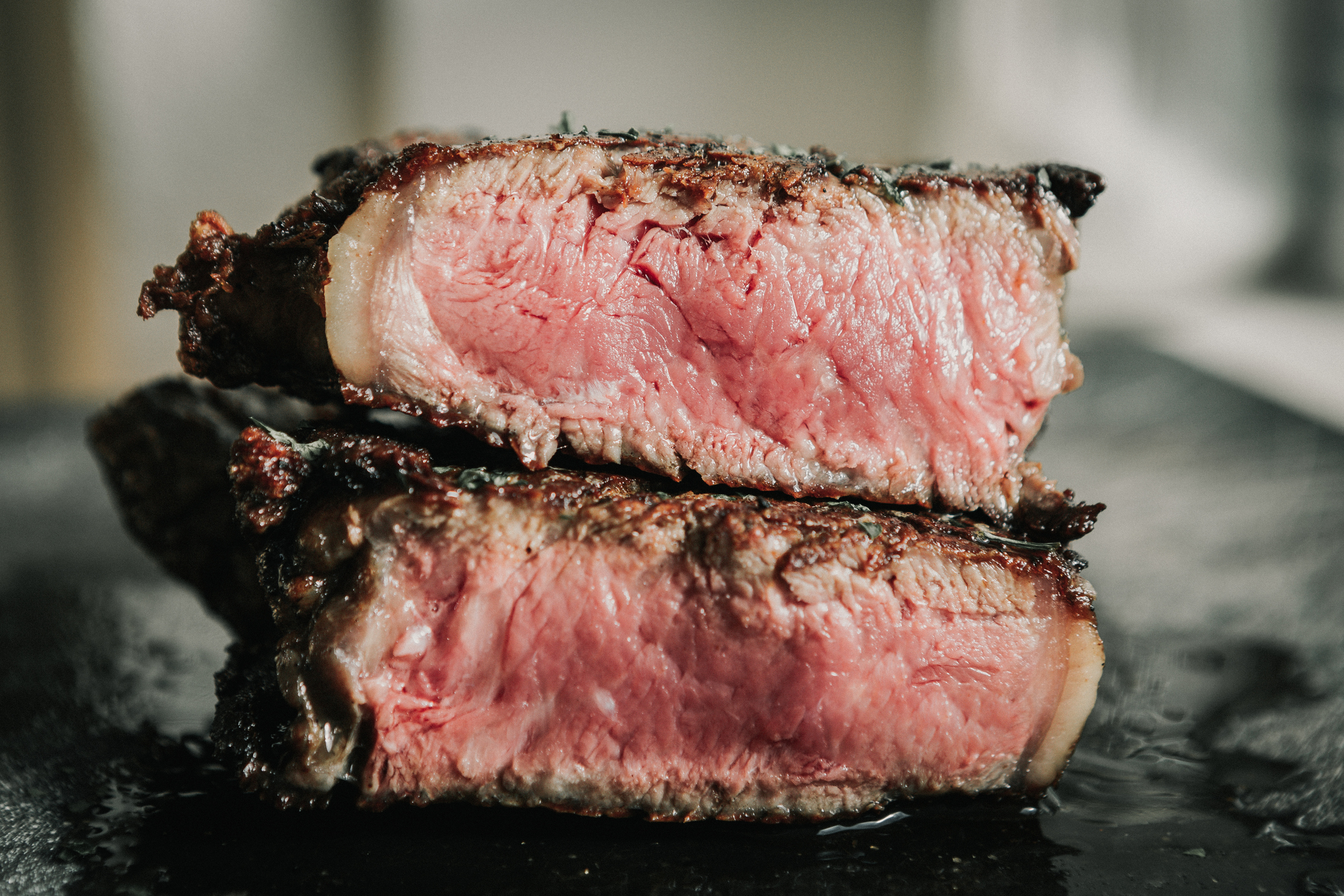
Sorry, steak lovers, but this is another food you should probably avoid most of the time.
“I avoid really fatty red meat, like highly marbleized steak, because it’s very high in saturated fat,” Dr. Leonard Lilly, the chief of cardiology at Brigham and Women’s Faulkner Hospital, said. “Clinical studies have shown that saturated fat consumption is associated with increased risk of cardiovascular disease, cancer and diabetes.”
Lilly noted that most people can get away with eating small amounts of almost anything on rare occasions, so he’s guilty of the occasional steak.
Bacon
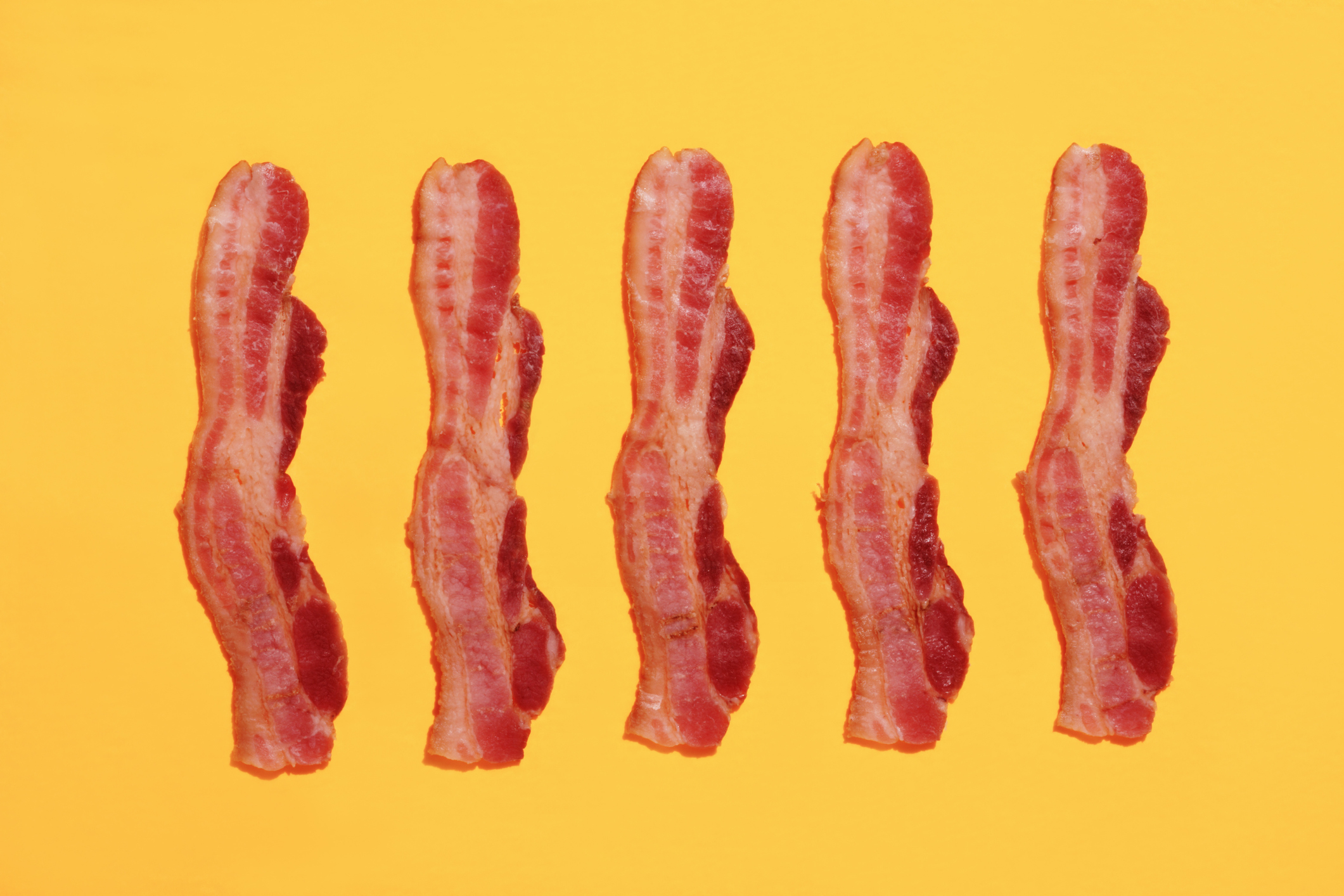
You were waiting for this one, right? Dr. Francoise Marvel, a cardiologist at Johns Hopkins University, said she typically avoids this salty, delicious breakfast delicacy.
“Bacon is an example of highly processed red meat that is high in saturated fat and increases the bad cholesterol — called low-density lipoprotein LDL — which is linked to increased risk of heart attack and stroke,” Marvel said. “The way bacon is processed is through ‘curing’ the pork, which usually involves adding salts, sugars and nitrates. The large amounts of salt (or sodium) used in this processing may increase blood pressure and fluid retention, causing the heart to work harder to pump blood through the body. Increased blood pressure, or hypertension, is a major risk factor for cardiovascular disease as well.”
Chemicals added to the meat, like nitrates, have been linked to cancer and other health problems, Marvel added.
“It should be noted there is a varying amount of processing and ingredients used by different bacon manufacturers,” Marvel said. “But overall, to lower the risk of cardiovascular disease and other health problems, limiting the intake of processed red meat like bacon is beneficial.”
Next time you order breakfast, Marvel suggests swapping two slices of bacon for two slices of avocado. Your heart will thank you.
Deep-fried chicken
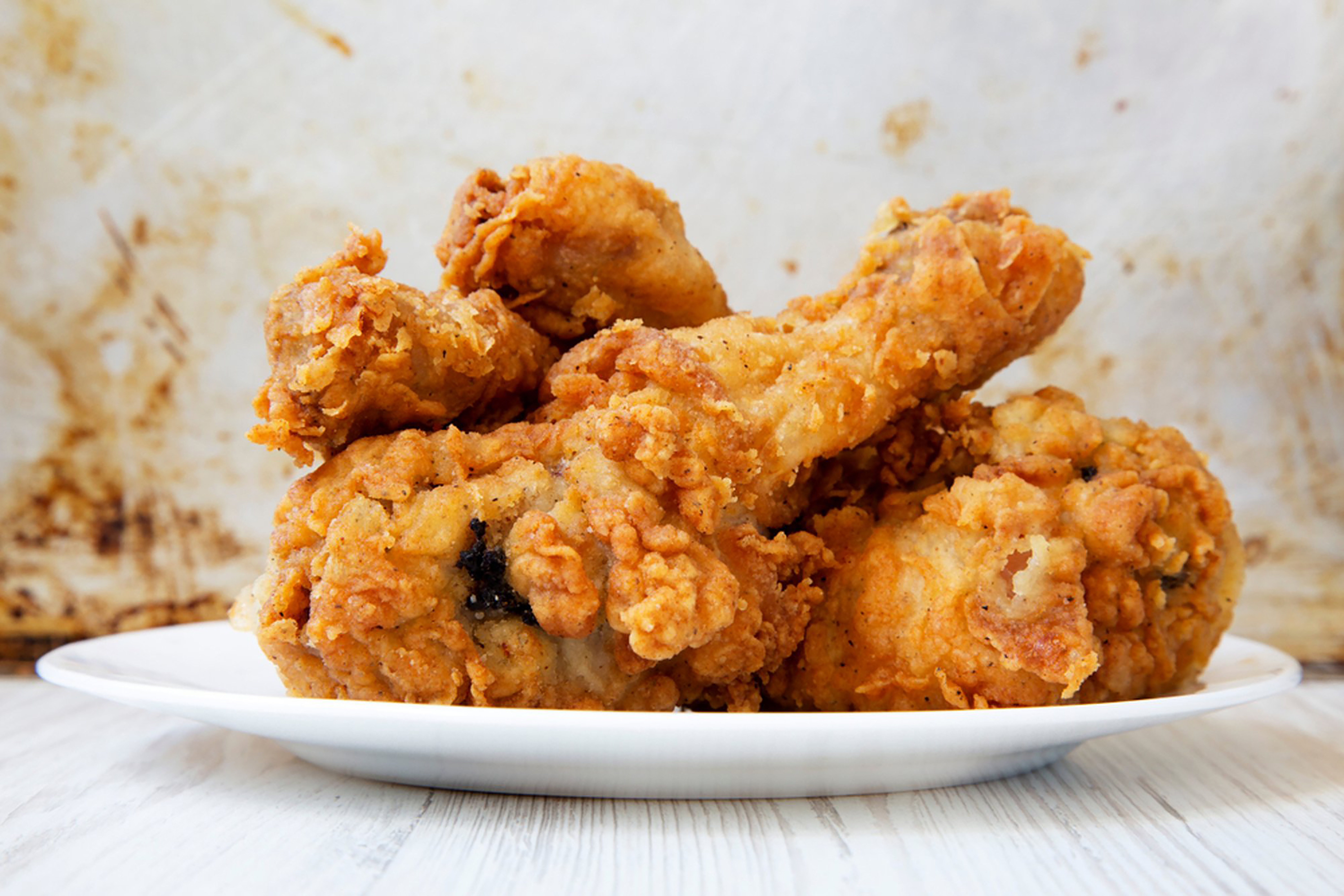
Fried chicken may be a trendy menu item these days, but it isn’t great for your heart.
“The one food that I rarely eat is deep-fried chicken,” said Dr. Sanjay Maniar, a cardiologist based in Houston. “Regularly eating fried foods will increase your risk of heart disease and stroke by increasing the amount of saturated and trans fats in the body.”
These unhealthy fats can raise LDL (bad cholesterol) and lower HDL (good cholesterol) levels, which serve as the building blocks for fatty buildup (atherosclerosis) in the blood vessels of the body, Maniar said.
“You can get great flavor by adding fresh herbs and grilling or baking chicken rather than deep frying it,” Maniar said. “You’ll keep the taste, but save the calories.”
Doughnuts

Many doughnuts are fried in oils that contain trans fats, which makes them hard on your heart, according to Dr. Jayne Morgan, a cardiologist based in Atlanta.
“Trans fats raise cholesterol levels and blood sugar, contributing to Type 2 diabetes, heart disease and stroke,” Morgan said. “Trans fats are often ‘disguised’ on labels as partially hydrogenated oils, so read your labels and avoid them.”
Still, not all doughnuts are fried in oils that contain trans fats. Dunkin’, for example, fries its doughnuts in palm oil, which is free of trans-fat. Palm oil does contain saturated fat, which isn’t great for your heart when consumed in excess — so make sure you’re eating doughnuts in moderation.
Bologna
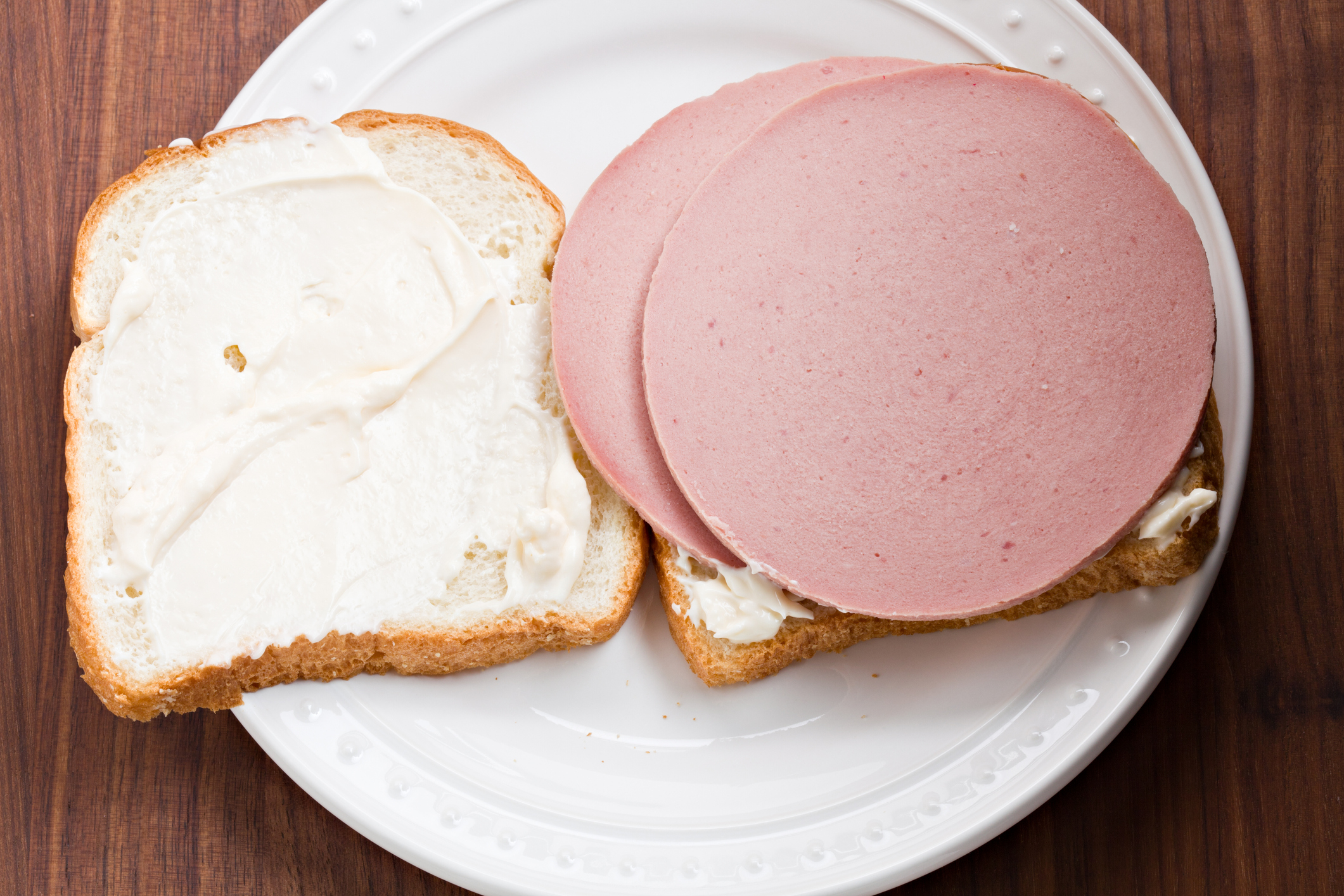
Maybe the last time you ate bologna was when you were in third grade, or maybe it’s still part of your diet. In any case, it’s probably best to skip it, according to Dr. James Udelson, chief of cardiology at Tufts Medical Center.
“In some ways, bologna is a symbol in that it incorporates many things that should generally be avoided, including highly processed meats, which are very high in salt content and associated with risk of cardiovascular disease down the line,” Udelson said. “It is important to note that the key to dietary heart health is following the American Heart Association’s recommended Mediterranean-style diet, which is high in vegetables, whole grains, fish and some lean meats, nuts and legumes.
If you eat any of these foods once in a while, you’ll be fine. After all, who can pass up the occasional slice of bacon and a fresh doughnut? But do as these cardiologists suggest — avoid them when you can.
This article originally appeared on HuffPost.
